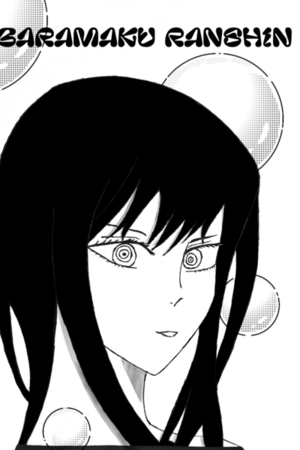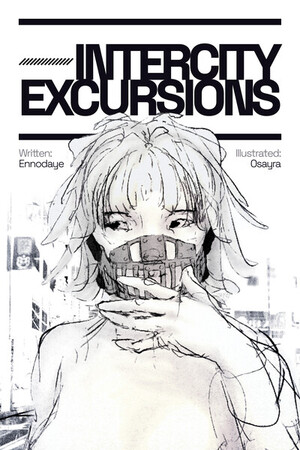Chapter 16:
10-1
Bears Eat Clover
A bear roared into Carmina’s ears, and the walls of the cave made echoes that nearly ruptured her eardrums.
The sound was overtaken by her breath, her heartbeat. Both were faster and more frantic even before she began to panic. She began to hyperventilate and both went off like a jackrabbit’s foot.
As she backed away inch by inch, the cavern stone prickled against her hairless skin. The stone was newly cold, and the air of the darkly early morning gave her goosebumps. The voice behind her breaths was high and small. Above her loomed a shape her dark vision could hardly make out, but it and the breath and the sound of its anger were unmistakable. Whatever had come over Carmina, she didn’t know. She only knew that if she acted with anything but meekness and a silent apology that she had suddenly become so strange and weak, her foster mother might eat her.
She slowly, over the course of minutes, raised her hands in gentle surrender. It could have been a threat if not for the fragile claws now on her fingers. Her foster mother fell back to four feet. Her two sisters poked their heads up behind her.
That day, she and her mother walked along the river. Her sisters caught fish a little further upstream. While they got a head start, Carmina’s mother surveyed her as she climbed halfway up a tree on the bank to untie a cloth strip someone had wrapped around a branch and no one had ever removed. It was threadbare and damp, but she could wear it and it could dry. As she wrapped it clumsily around herself, her mother’s eyes on her were steady. They had no language, but it was clear to Carmina that she didn’t at all fear her. Instead she was disgusted.
As they walked along, the water hurrying through the banks, there was an understanding that she couldn’t live with them anymore. It was a relief for them both. Her mother experienced it as the fulfillment of a promise, reward after a punishment. Carmina’s concerns were more practical but no less crushing. If tying a cloth around herself was arduous, basic hunting would be worse. She would need to study the traps humans seeded throughout the woods, and hope she had any dexterity.
The bears walked away, and she was alone—as she always knew she would be, just not like this.
No longer used to hunting, clumsy when catching fish, she looked more and more longingly out at the town, the big brown splotch that seemed to sit atop the tree line. That was where the humans lived, and when human, do as the humans do. They seemed so secure, so profoundly comfortable. It could be nice.
She entered the town and it was not nice. It was achingly loud and churning with people. Even the metal wheels on the sides of buildings whirred. Town criers shouted news to no one. The odors of dirt and urine, rarer here, were oddly sharp. But her eyes watered because some undercurrent of smell was setting her mind off, spurring her imagination into waking nightmares. As soon as she realized the person in the crowd she’d wandered next to was wearing the pelt of a bear drawn tight over round shoulders, she saw a vision of the bear dying to a flaming bolt. That was only the clearest among dozens.
When she dashed away from the thoroughfare, she relaxed, taking deep breaths. This side street was far less busy. She watched a couple stroll and saw they were utterly calm. She could be too.
Studying their frames, she adjusted her posture, squaring herself. The rag around her and her bare, grungy feet would have to be dealt with. Already she knew that the people in rags sat or stumbled against corners, and that others wanted nothing to do with them—but at least she could do whatever they would do to get fed.
Being in the city continued to work—to awaken—strange things in her mind. As she sat along side streets holding her palm out, regrettably she inched herself closer to the busier market and its stream of passing hands, listening to more chatter. She found that while the visions still stung, and they felt all too real, the more she saw, the easier they were to set aside. And she found that of all the words she heard, or saw, none were strange to her.
Realizing everybody had a name, she assembled a few syllables. When the man in the sunhat sitting next to her swung his head around and asked her who she was and how she got here, she was able to tell the truth. “Carmina. My mother’s dead.”
The knowledge came to her so fully it was disturbing. Faster than a butterfly, quick as one catches a cold, she had changed overnight. When it was very late, so late that even the thoroughfare was empty, the man in the sunhat turned onto his side and slept there despite the chill. Carmina stayed where she was, sitting upright, her face cradled by her knees, unable and unwilling to sleep.
***
Most people found food by exchanging coins or paper with the shopkeepers along the market row. Some of the homeless could pay sometimes, but several of them appeared to have a cordial relationship with one shopkeeper or another. They would slap hands and talk for a long time over fruit. Other people would buy theirs and hurry away.
Even the attention of the man in the sunhat made her wince. She preferred no attention at all. But that wasn’t life in civilization; one person living alone, detached from the whole, couldn’t trade.
There was an alternate route to food. Studying the ones who walked fast and never caught a shopkeeper’s eye, learning the foot traffic of people, she stole. Carrying fruit and thin cards of bread away from the market to eat them in an alley was comfortable enough, and a fulfilling enough test of skill, that each modest lunch was a highlight of her day.
***
The Spire above Littleburo looked as bolted to the earth as if it had always been there. Carmina had never considered before entering this place that humans might have built it. It seemed incredible that they’d even built houses, though of course one knew they repaired them.
Climbing to a third-story rooftop was not nearly enough to give her an idea of how close and vast it really was. She only knew it rose high and might fall.
The flashiest people in town were mages, many of them younger like her. Even the ones who didn’t speak were bundled in the totems of their craft. They were like lumbering birds, wearing bright, uselessly eye-dazzling colors and fabrics that begged to be clawed. (Carmina’s conceptions of “useful” and “useless” were very much influenced by all she didn’t have. Her rag had been long since replaced by a shirt and pants, and a single half change to wear as she scrubbed these in the river, but clothes were inevitably hard to pickpocket.)
The mages would spend hardly any time in the market, strolling and lingering for a moment like the tourists they seemed to be, then taking off for the forest that way or “the academy” the other way. They reeked with animal memory.
This meant they reeked of fate. As long as sitting in the marketplace reminded her so profoundly of the lives in the forest—no matter if she pushed them aside for review in her fitful dreams—she would struggle here. The mages seemed to offer a way out, or rather to tease it.
One day she sat against the pub wall studying a gown’s deep-blue tail. She could, yes, claw at it, and start a brawl that wouldn’t end well for anyone. Or maybe she could start a bigger feud and become a warrior again…
How had it taken so long for her to realize it?
Armed with bones, maces, or guns, mages and their less pretentious cousins the hunters were pinnacles of might. Carmina had hands. She had thumbs. God, she could have been looking for a rifle. She could have ended this stasis long ago—but it had been just comfortable enough for her to linger.
She gazed at the weapons on the mages’ belts. Among the wands was a dagger hanging down, and daggers didn’t hold memories. They didn’t hold magic either, but they cut.
Plucking a weapon from a belt would jostle the whole thing. Very easy to notice. Carmina stood up, made a show of looking around as if someone had called her, and then pushed past, exaggerating the shove of her upper arm. The mage cried a brief “hey!” but nothing more. Meanwhile, she had a dagger.
She didn’t want to be here anymore. She didn’t want to go anywhere, either. She didn’t want to die or live. She felt numb to it all.
The dagger in her hand, which she stroked the edge of well into the night, hiding it between her face and her knees as if someone would really come spying, promised something. She could change herself. In a smaller way, a way yet to be defined. But what did she want? If she could choose her dream, what would she dream of?
A bygone day came to her. A natural memory, unfolding gently in the mind. It was the death of her birth mother. A creature larger than the most massive bear, with a shaggy mane and a gnarled face almost like a human’s, had descended upon her suddenly. Carmina had screamed and jumped away. Her mother overturned the beast, aimed her jaws for its heart. They didn’t make it.
It was less common for bears to be killed by rifle or wand wounds than it was for manticores to lead and hunters to follow. That was what Carmina knew now, having heard more than whispers. Back then, she only cried, pathetically, pointlessly, moaning without tears. The manticore, once done, licked its chops and sat protectively near the body. It eyed Carmina but made no move. It knew, like its masters, that the harvest was sweeter when they were older.
What they did to other bears was between them. But what they did to the only one she’d ever loved was personal. And if those bones should be in this city, she should be the one to find them. It was the slimmest chance in hell, but the only thing Carmina could bring herself to care about. The pleasures of better food and drink, of not waking up shivering hour after hour, weren’t compelling, because even if she had them, she would still be living here, in a land not for her, with strange and untrustable people, that she couldn’t imagine feeling less empty.
Slowly but with determination, she slid the dagger onto the ground and shifted herself to hide it. She would find her mother’s bones, because they were her bones. She didn’t even get to touch them.




Please sign in to leave a comment.